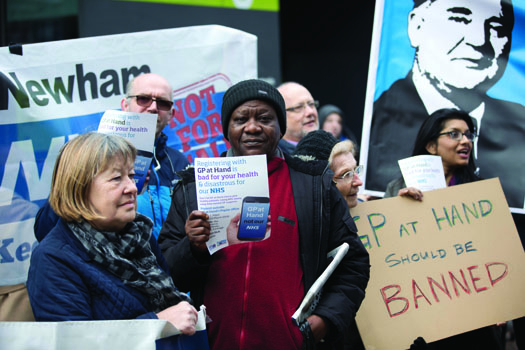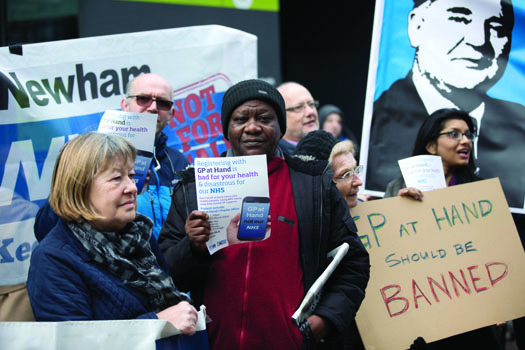
cover story image
Many GPs reading a health supplement in London’s Evening Standard newspaper last month will have recoiled in horror when they saw video consultation provider Babylon splashed all over it.
Not only did the private provider sponsor the publication – its branding stamped proudly across the pages – it was also lauded by health secretary Matt Hancock, who, featured in an interview printed in the supplement, where he again spoke about using Babylon’s GP at Hand app for NHS patients.
This was the latest controversy surrounding Babylon, whose foray into general practice territory has sparked fierce opposition.
After it partnered with a west London GP practice last year, offering online video consultations to suitable patients from across the capital within two hours of booking, the tech invasion snowballed.
Babylon is now one of 37 CQC-registered private providers offering online GP services in England, while Wales and Scotland look set to follow suit.
These new-fangled systems and smartphone apps are undoubtedly more convenient and widen access for young, healthy patients. But it is potentially to the detriment of other users.
Some providers are luring overworked GPs away from their struggling practices. Others are siphoning public funding by working directly with NHS surgeries, signing up selected patients from outside the locality using a loophole provided by the NHS’s out-of-area registration scheme – which also means the service is not required to provide home visits.
In some parts of the country, the threat posed by digital services is already a reality. In London, practices have complained of losing younger, fitter patients to GP at Hand.
GPs are also moving to the dark side. More than 200 are on Babylon’s books, and Doctaly works with around 80 GPs – 70 from the NHS.
Healthcare Group’s Now GP app charges for online consultations provided by ‘hundreds of NHS GPs’. The company is also trialling free video consultation services with a number of GP practices.
Then there’s the likes of Push Doctor, which had a whopping 7,000 GPs when it launched three years ago, providing instant video consultations at a cost of £20 each.
Now it, too, is dipping its toe in the NHS water. In the autumn Push Doctor entered a partnership with Birmingham-based superpractice Modality, whereby it would offer its online consultations for free in return for a share of Modality’s 400,000 NHS patients.
One of the criticisms of the online consultation model is that it can create a two-tier health service because only certain patients are able to use it.
GP at Hand, for one, was previously unable to register patients with long-term health needs – such as people with learning disabilities, complex mental health problems and dementia – as well as drug-dependent and frail patients and pregnant women. However, the restrictions were lifted in November.
But some patients will still find it difficult to access online services if they are not technology-literate.
These patients will continue to battle it out for the increasingly elusive face-to-face slots at their local surgery.
And, chances are they won’t be booking their appointments online. Instead, they’ll have to make do with queuing on the phone first thing Monday morning.
Pulse October survey
Take our July 2025 survey to potentially win £1.000 worth of tokens












